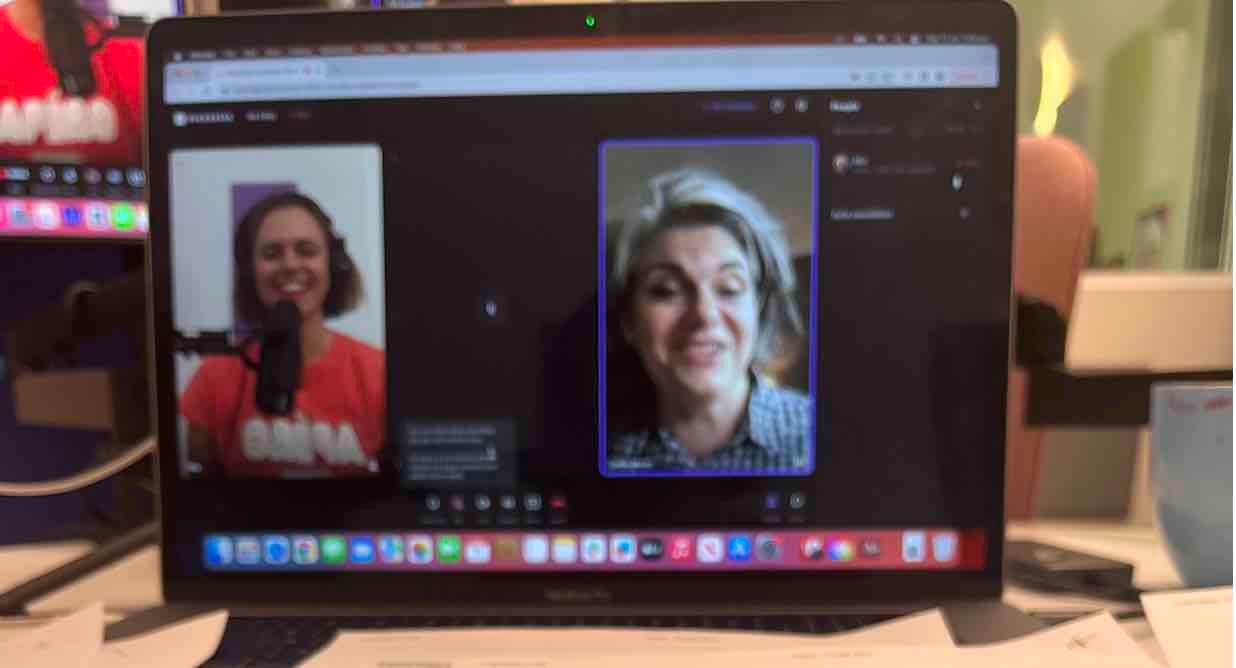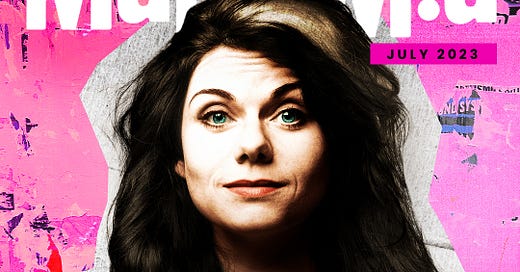But what about the men?
Plot twist: feminist Caitlin Moran insists that life is harder for men and boys right now than it is for women and girls. She has a point.
Hello! I’m Mia Freedman and this is my newsletter. If someone sent it to you, welcome! You can subscribe for free here:
One day not long ago, my friend’s 6 year old son surprised her by announcing he wanted to be a girl when he grows up.
”Why is that, darling?” she enquired in what she hoped was a casual tone.
“Because girls can do anything,” he said, wistfully.
Ah. You see, my friend also has a daughter who was a couple of years older than her son and apparently, she’d done such a good job of pumping her daughter’s tyres she’d forgotten to tell her son that he too, could do anything. Didn’t he already know that? Didn’t society already tell him that every day in every way?
Not anymore.
I mean, it used to, for sure. Before feminism, it was just understood by everyone that boys could do anything and girls were for decoration. It hadn’t occurred to my friend - or any mothers of boys I know including me - that our sons (or any man) would feel anything other than completely secure in their position in the world relative to women and girls.
Oh how wrong we were. Because particularly in the past few years when we’ve been urgently teaching our daughters about consent and #metoo and wearing pussy hats and celebrating International Womens Day, our sons have also been watching and listening and absorbing some ideas about themselves we may not have intended.
Thanks to feminists like author and columnist Caitlin Moran and those who came before her like Germaine Greer and the suffragettes there is a better understanding than ever that women and girls are wildly disadvantaged in the world for all the reasons we know. There’s the pay gap, domestic violence, body image, sexual assault and in some countries - including America! - women do not even have legal rights over their own bodies. In some countries, women can’t drive or go to school. Feminism has made the world a lot better for women, it’s true, even though there’s still a long way to go.
But what about the men? What about the boys?
How are they doing? Not so well as it turns out.
Boys underachieve at school, compared to girls. Boys are more likely to be excluded from school. Boys are less like to go into further education. Boys are more likely to be prescribed medication for ADHD/‘disruptive behaviour’.
Men - especially straight white men - are assumed to be suspicious, useless, simple, arrogant, cavemen or toxic narcissists. They are also the most likely to die by suicide, be victims of violence, suffer loneliness, experience homelessness or be imprisoned, die at work or in wars, lose custody of their children. There’s also the devastating effect of porn. Is it that surprising that into this void, leaps the terrifying influence of Andrew Tate and the problematic messaging of Jordan Peterson?
And then……how can you complain about anything when you’re a straight white man? Oh poor men. Here’s the world’s tiniest violin.
Except you know who is also a straight white man? The 13 year old boy sitting alone in his bedroom wondering if there’s any point to him being here who keeps hearing how men are ‘toxic’ and ‘privileged’ and ‘rapey’.
Caitlin Moran has shocked everyone including herself, by writing a book called What About Men? and a few days ago, I spent the most glorious evening talking to her about it for an episode of No Filter and a Mamamia cover story, both of which are out today (click below to listen or find it in your pod app and you can read the cover story here)

In everything she does, Caitlin is laugh-out-loud funny and this new book is a must-read for every woman who has a man or boy in her life that she loves. Because as Caitlin points out, unless you live on a ladies-only commune, the lives of men and women will always be intertwined. If they do better, so will we.
Fasten your seatbelts and pop your pre-conceptions in a drawer.
Is it harder to be a man than a woman these days? Moran’s surprising answer is, in many ways, yes. And I have to say, I’m inclined to agree with her.
The episode people keep messaging me about……..
I can’t remember the last time I had such a massive response to a podcast episode. People I didn’t know even listened to No Filter have reached out to tell me how much this episode opened their mind and their heart to what it’s like to have depression. And also, the experience of class in Australia.





I love CM. I’ve read all her books & think she’s funny, smart & someone I’d love to be friends with so I am SUPER keen to read this new book of hers. And of course have a listen to the pod & read the MM cover story.